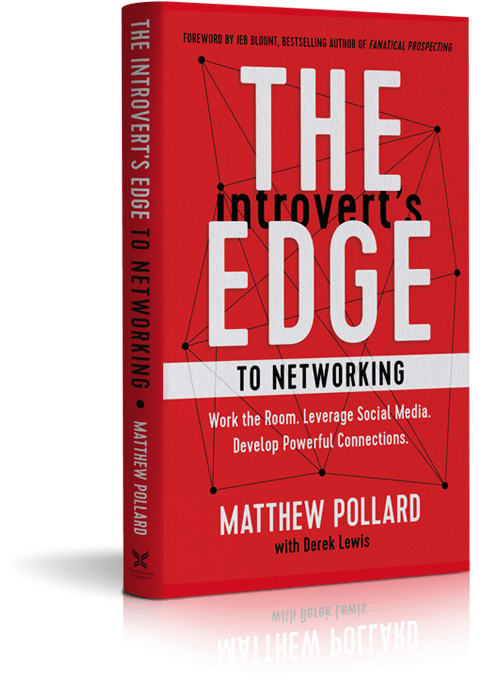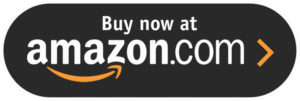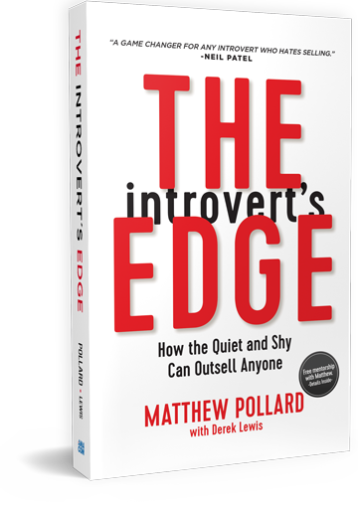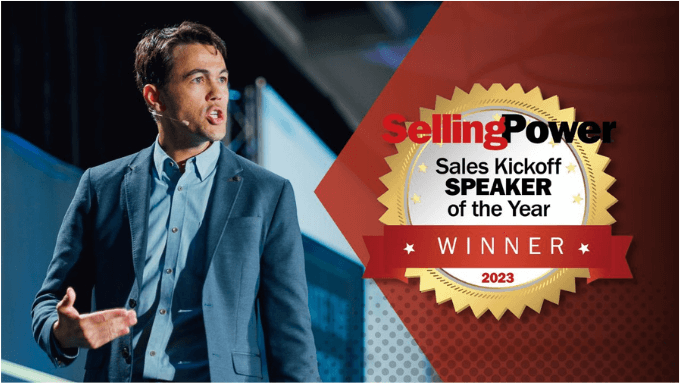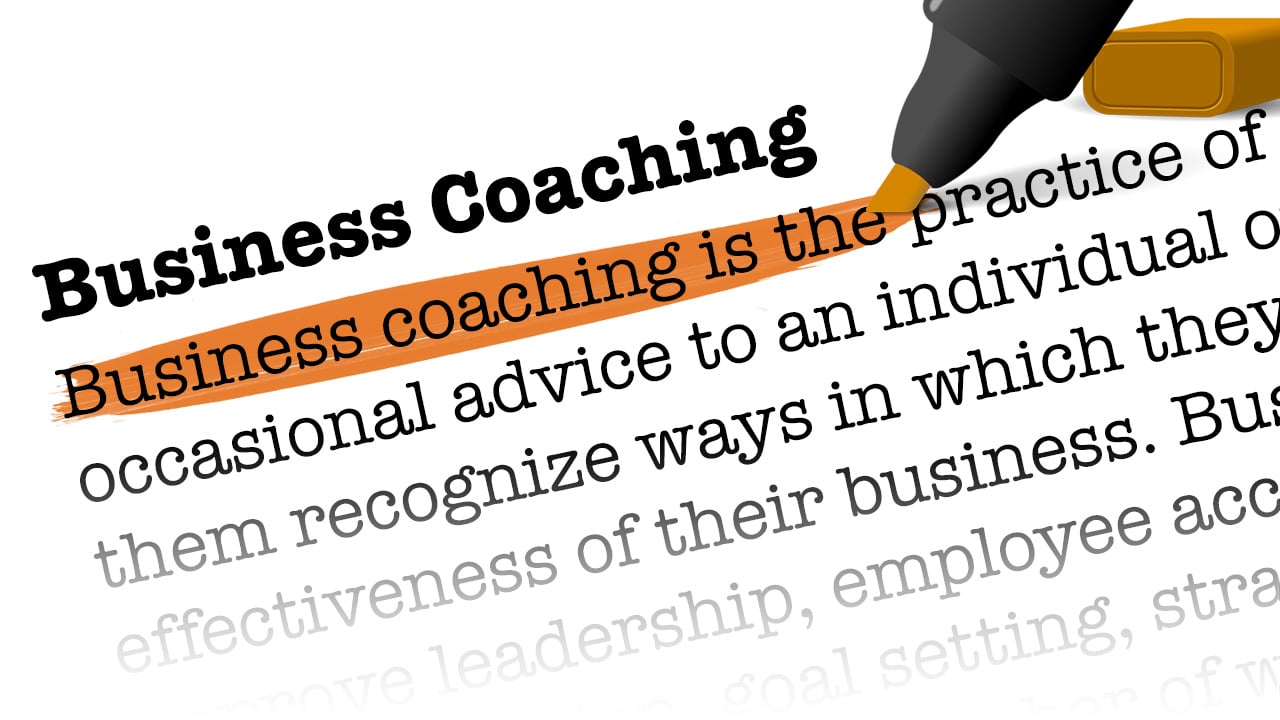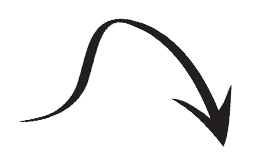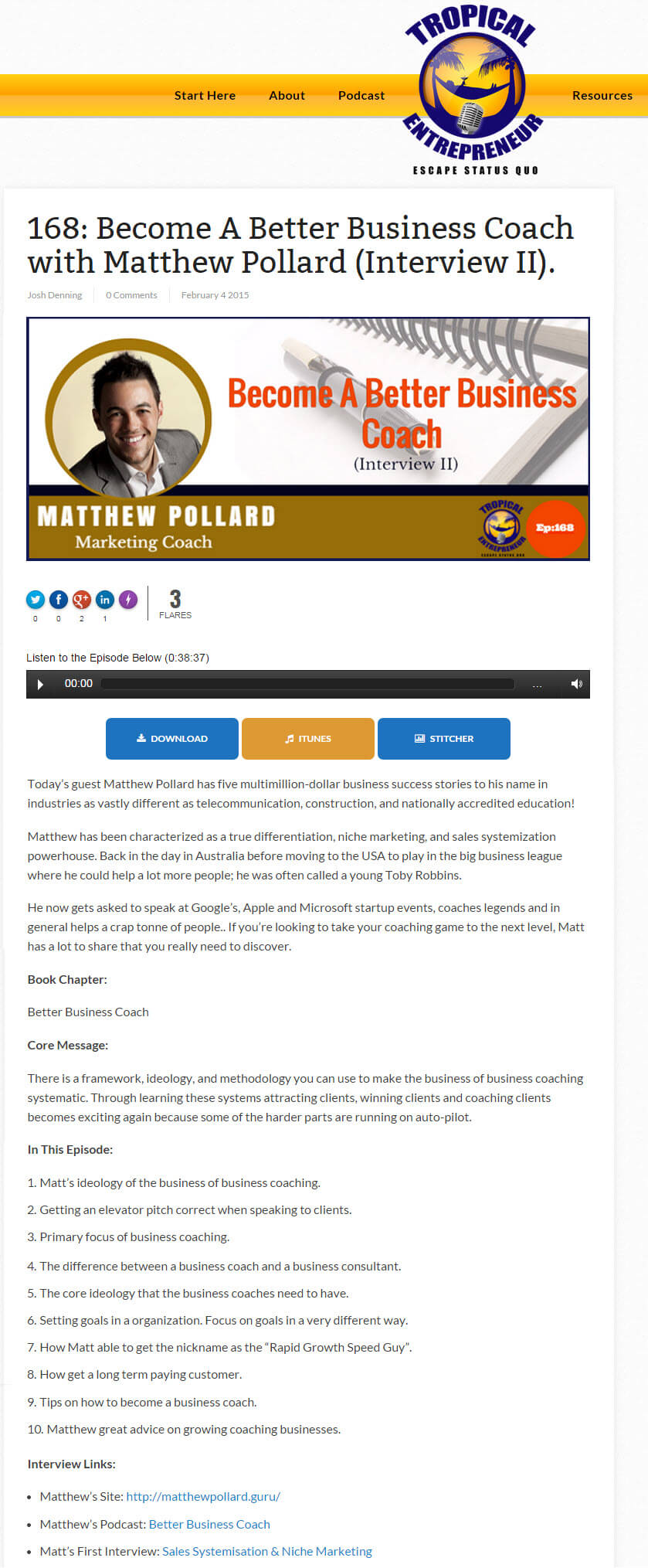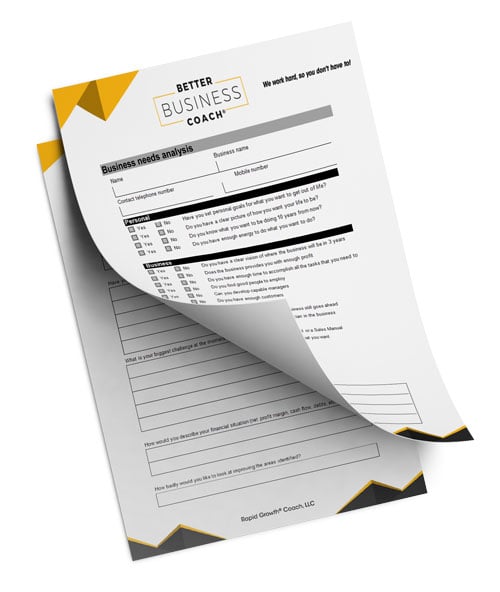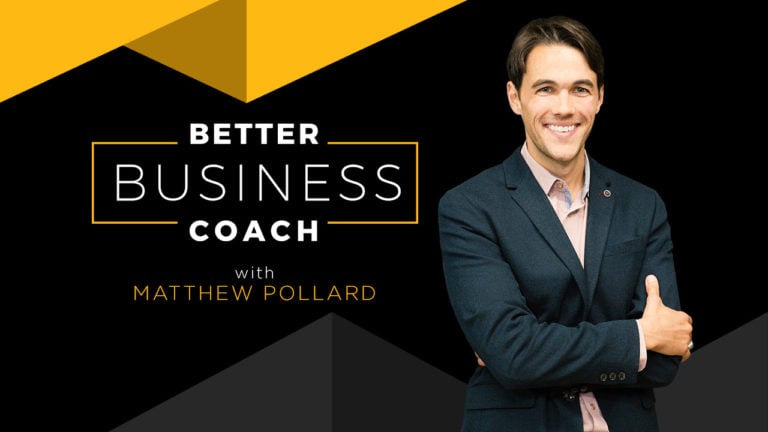Tropical Entrepreneur Transcript
Josh: Getting back to the mission of helping you get more customers that spend more money more often – and lighting the pathway for you to become a market authority. We’re lucky to have my good friend, Matthew Pollard back with us again today, as he’s launching The Better Business Coach Podcast. So Matt, thanks for joining us again, man.
Matt: More than welcome mate, I should’ve let you do the intro. You summarized that really well.
Josh: Matt, I don’t much around Matt, you know that. So I’ve given everyone a, just a little bit of a brief on it there. But we’d love to hear from yourself Matt. What’s, what’s The Better Business Coach Podcast going to be about?
Business Coach
Matt: Well look, primarily, I realized a while back business coaching, especially for new business coaches is incredibly difficult. They go through the process of trying to find clients for themselves, which is hard enough. And then have to learn how to sell all at the same time, when they still don’t quite know what they’re doing. On top of that, when they first get a client, they’ve got to work tirelessly to create worksheets, templates, session plans and read ridiculous amounts of information – as I’m sure you’re aware for the discipline you’re in, just to make sure that all of your client’s questions can be answered by you. And it’s just an overwhelming amount of work. So I’m trying to do all the work for the business coaches so that they don’t have to. I’m really trying to break that workload down, so that I can give them access to all the stuff that I’ve spent over a decade perfecting. So they can just go out and do what they probably decided to do – and that was just, help clients.
Josh: Yeah for sure, that’s great man. I mean, I definitely know exactly what you’re talking about, and what they’re going through. Because even myself, after having been in the digital agency market – or industry now for over a decade. When I left my last agency that became one of the largest agencies in Western Australia, I actually thought I would go into full time coaching. And I am doing a bit of coaching now, and definitely working with some students myself. But what I realized when I started was that, “Oh my God, this a whole new industry here. I don’t actually know how to sell this. Where do I start? This is a whole new thing.” And it was quite daunting to actually become a coach. Even with over a decade in the agency industry, but 15 years in selling. So it is a huge amount to learn – how to sell coaching. And I guess that’s a good question, what are some of the things that a business coach can focus on to actually convert a prospective client, or an interested prospective client into an actual coaching client?
Matt: I think the first thing to understand is, I think a lot of business coaches that come to the profession have a functional skill. They may be an accountant or very good at business, working in a large organization. So they’ve never been responsible for going out and actually selling anything themselves. So it’s a whole new undertaking. It’s probably something they never learned in school, and all of a sudden, they’ve got to go out and start talking to clients and closing deals. And it’s just so far out of their skill set, it’s confronting. What I try to do is, I try to teach it in a different way. Because the first thing that I teach, which is the elevator pitch – it’s a horrible way of doing things, it also doesn’t engage the customer. So what I try to do, is I try to teach people in a way that they can get people interested about what they do, without actually seeming like a salesperson. When somebody asks you what you do, if you say that you’re a business coach, people are like, “Oh yeah, I’ve had a bad experience with a business coach in the past.” “Oh, I’ve thought about having business coaching but it’s–” Conversation closed, because they know at that point you’re going to try and sell them something. It’s because you’re telling them the feature of what you do, “I offer business coaching,” not the true benefit. For instance, myself, primarily my skill set is in sales, niche marketing and differentiation. So when they ask me what I do, I say, “Well primarily, I work with clients that really have a great product or a great service that they provide. And they’ve set up their business, everything’s just ready to go. But for some reason, they’re struggling just to get that clientele. They know that they can help, and they know that they can benefit. And these clients should be banging their door down. Instead, they’re struggling to approach people, and they don’t know how to go about it – and they’re starting to become disgruntled in themselves, and lose faith in themselves. Do you know anyone like that?” And sometimes they’ll say, “Well yeah, actually I’m like that.” Or, “My friend–” Or so and so is exactly like that. And all of a sudden, I can start asking questions about them and re-establishing things that may be going wrong. I’m not going to give away the prize, but I’m going to start saying, “Yeah, does that person feel like they’re isolated, stuck at home? That they feel like they’re imposing on people when they talk?” And they’re like, “Yeah that’s exactly what they started– That’s exactly what they tell me.”
I’m like, “Okay, well basically what I do,” and this is where you start to implement what you do a little bit. You say, “Basically what I do, is I run through a 10 day coaching program that’s spread out 1 day a week over 10 weeks.” Or, “I run a 3 day coaching session, where they come in, and we absolutely go through their entire sales and marketing strategy and script everything so it just works. And the whole idea about it is that after that, they can walk out with confidence, knowing how to approach things in a completely different way. Where customers will tend to come to them, or be attracted to them – just because they’re handling themselves differently. But more important than anything, it gives them faith in themselves again, so that they feel that they can take the world on.” Which I’m sure that’s how they probably felt when they started their business, right? And all of a sudden, that person – if it’s them. They’ll be like, “Yeah that’s exactly what I felt like when I first started, but then I’d hit roadblocks.” If it’s a friend, they’ll say, “Oh yeah, they used to be really excited about it, and they just lost it.” And you can turn around then and say,
“Well look, I tell you what. How about we set up free session where I sit down for say half an hour, and work out exactly what we can do to help implement these strategies within your business?” If it’s a session plan, seminar of some sort – you can say, “Well how about I sit down with you, organize a meeting with you, where we can sit down and work out exactly what benefits–” Not features. “What benefits you can get out of what I offer.” If it’s a friend or a family member, you say, “Well how about I send them something?” A lot of people have a book these days that they offer. Other things, maybe I send them a quick 7 point plan on how to do x, y and z. “You can say that you bought that for them as a present, and then I can follow up with them as a part of that, and maybe set up a time when we can sit down and talk.” It’s a whole conversation, and it’s not a sales pitch. I just started talking about how I can help them, but by asking if they know anyone like that – as opposed to, “Is that something that you’re interested in?” All of a sudden, the whole conversation changes.
Josh: One of the models I hear a lot in the coaching industry for selling coaching – I’m interested to hear what you think about it and if it’s similar to what you teach for coaches to actually get the sale. Is the, where you sit down and really go through the 3 time frames with people, which are the– “Where do you want to be?” And really explore quite deep into where they see themselves in 12, 24 months. Their ideal outcome, their dream life in 2 years, 3 years’ time. Or if we were having this conversation a year from now, and the absolute best case scenario had unfolded – what does that look like? And get a lot of detail out on that. And then start to talk to them about, “Well where are you now?” And then come to the end phase, where you start to look at the problems, and then see how that will fit together. And if – start to go through a plan, not give them the actual, the how. But is that similar to what you do? The where they want to be, they where they are now, and what’s held them back?
Matt: Yeah, very similar, but when we’re looking at – for instance, a lot of what you do is SEO consulting and how to get somebody’s online presence to be accelerated. That has a lot to do with, “Where do you want to be in the future?” For a business coach especially, we want to talk about what they want to do in the future, we want to talk about what they want to achieve. But generally we want to start with the low lying fruit, “What problems are they experiencing right now that we can fix to make their life better?” What I look at is part of the sales strategy, and it’s through The Better Business Coach Podcast, I’m going to provide the sales scripting, to how to get somebody start talking to you at the beginning. Then I’m going to provide the templates that I use – it’s called a Business Needs Analysis. But basically it’s asking them a series of questions, which helps them highlight what their true problems in their business are. It starts to get them talking about the fact that they need help. Because when I just talk about sales and marketing coaching, I’ve got some series of questions that I ask there. But for a business coach, they’ve got to look at – right across the board, what problems are they actually experiencing? And I’ve been responsible for several multi-million dollar businesses, where they’ve grown to multi-millions within 3 years from the ground up. And you can have problems in staff engagement, you can have problems in poor systems. I mean if you create a wonderful sales and marketing strategy, but the systems behind it are terrible, then you’re going to have customer complaints coming through. If you have great systems and processes, but your sales and marketing isn’t working – you’re going to be able to handle your customers so, so well. But your business is going to go broke anyway. Now, with business coaches, frequently they have the experience in everything but sales and marketing. And a lot of times I suggest, “Get a sales and marketing coach, and offer that to your client.” And you work in tandem with them, and the sales and marketing coach only when they are needed. And they help grow the business so that, as it obviously gets bigger and bigger – you get more and more business coaching, and you can stay in contact with the systems. In the future, I’m also going to be launching a podcast called, Get More Customers. And that’s where coaches are going to be able to really learn how to help in the sales and marketing, and coach their clients there as well.
However, for a business coach, primarily we want to focus on what problems they’re experiencing? How can we increase productivity, reduce costs, increase staff engagement? What can we do to make their business lives better? And primarily what we do here is, we start talking about what the problems they’re experiencing. And then we look at what problems they could possibly experience in the future. A lot of business coaches focus on what the financials are now. And the problem with financials, just like accounting – it’s looking back at the past. And a lot of these growing businesses, or even businesses that have hardly been around for 6 months. If you look at the 6 month financials, it says you’re going broke. So you want to focus on the problems that they’re experiencing now, what they’re heading to in the future? You look at the goals. You get them engaged, you become their biggest supporter – and that’s how you get coaching clients.
Josh: Very good indeed. So just to look at coaches and consultants for a minute. What’s the difference Matt, between a business coach, and a business consultant?
Matt: There are few little differentiations, and the primary is that a consultant gives advice and tells you what to do. A coach asks questions, gives guidance, and solicits the right directions out of their client to obtain better buy in. And also doesn’t need to know all the answers themselves. For instance, I am a sales niche marketing and differentiation consultant primarily. I’ll tell you exactly how to get rapid growth in your business. Because I know exactly what I’m doing. For a business coach, you can’t know every single industry. I mean I know how to make any industry have sales and marketing growth. Because it’s a one size fits all. There are certain groups of strategies, depending on the industry you apply them, and it works. You can systematize an entire sales process that quickly.
But when you’re looking at the exact CRM system that they’re using, the HR system they’re using. Their – exact specific people they’ve got in their HR department, there are so many variables. You need to coach more often than you need to consult. If there’s a specific problem that they’re having that you know you can just go in, get your hands dirty and fix it with them – you can be a consultant during those times. And business coaches will sometimes be a consultant during specific sessions. However, as a coach, we can work with clients over all of the areas of their business. And provide – person to talk to, a person that solicits what they probably already know. And helps them grow into a better business, and a better leader themselves through an internal assessment process.
Josh: Makes sense, really good explanation. So let’s just move back to talking about The Better Business Coach Podcast, specifically for a little bit more. Now in your dot points about what people can expect. You talk about the core ideology that coaches will need to be more successful and more effective. And that that’s one of the big parts you’ll go through. And consistently go into deeper through – as the series continues. What, in short, what is the core ideology that the business coaches need to have?
Matt: There are several things that are really, really important for them to know. The first one is how to listen. When you’re a manager within a business, you tend to tell your staff what to do, or you tend to show them what to do and then get them to do it. As a business coach, you need to ask questions to work out what’s best for your client. You need to hear what they’re saying between the lines. They may be saying something like, “This staff member is not performing. This staff member is doing all the wrong things, and doesn’t seem to have any care about my business.” And what they’re really saying is that, they’re not getting what they want out of that staff member. And it could possibly be because they didn’t set the right framework at the beginning. They didn’t set the right expectations.
Neuro linguistic programming teaches the – at cause, not effect. So we might need to help them and solicit them to come back to cause and say, “Maybe I didn’t give all of the right things at the start, and maybe that’s why we’re having this problem?” Learning how to listen, and then learning how to teach people to come back to cause are 2 very strong ideologies that you need to really understand.
Next one is that you need to learn from your clients. A business coach isn’t supposed to have all of the answers. They’re supposed to help their clients by asking the right questions. “And I’ve had a client just call me and say they want to talk about how to increase sales. And I’ve never done sales before, how am I going to do that?” And the answer is, that you can ask questions to solicit the answers, and allow the customer to come to his own conclusions about how to grow his sales department. And they always know more about the industry than you do. A true business coach has to ask the right questions to solicit the right outcomes for their client, and use their experience and their logical mind to guide the person. Because the person, a lot of the time is stuck in the problem and they’re run by emotions. A coach’s primary job is to step them out of that.
Business Coaching Programs
Josh: Sure, sure. Now a lot of business coaches now are moving more towards the model of running people through group coaching sessions, and having digital products online or even whole digital coaching programs. Where it’s a 4 week, 20 videos per fortnight or 10 videos per week, 5 videos per week, 4 modules, 3 modules, 6 modules – that kind of digital program. Might be some webinars and some phone coaching as well. Are you going to be going into like that area of coaching in the podcast as well?
Matt: Yeah so, leveraging yourself is one part of coaching that – that’s just how you monetize the skill sets that you have. And we’ll definitely go through that. We’re even going to include things like – a lot of business coaches spend a lot of time trying to get PR in publications online. They’re trying to write for everybody, and it’s time consuming – and there’s no real strategy there. So we’ll look at what PR you need to be doing to get the recognition you need. We’ll look at how you’re going to package yourself to be able to get the most financial rewards from what you do. And there are lots of different types of packages. The closer they get to you personally, will increase the rates. This is all about making it accessible to the people that can’t afford to pay for 1 on 1 time for you. Plus, making sure that you can leverage yourself to earn as much money as possible. And yeah, we will go through all of that.
But primarily, the first steps are learning and understanding the ideologies around being a coach. And the next thing is learning all of the training, so that you can talk about every topic a business will want to discuss. And thirdly, I want to give them access to the worksheets and templates that I spent a decade developing and perfecting. So that when a client calls and says, “I want to go through x, y or z,” they will have a template – even if they’re not comfortable on the topic, that they’ll just run through step by step, and watch one of the podcast videos that we have. And as a result of that, lead a wonderful session for client. What I’ve done is, about 150 or so templates that I’ve created over that time. We cover off on everything, and obviously we’re going to be – in the first sessions, we’ll be covering off on some of the more important ones like the first sheet that you do, that turns a prospect into a paying client. However, it’s really just a – A, B & C process. You just ask the questions with a little bit of guidance, obviously that you’ll get from the podcast. And it will take you right through the process, to the final, where you give conclusions. And each worksheet’s built like that. So it’ll tell you what questions to ask, so that you don’t have to be the person that knows everything. You can just follow the template. So yes you’ll understand the ideologies, you’ll have training around it. But then you follow the template. And as a result of asking the question, it’ll bring back all the ideology and training you’ve received. And that’s going to make you the strongest coach you can possibly be. After that, and once you are the absolute expert or The Better Business Coach, if you like. Then, you can then start to package yourself in every way, shape or form. And the great thing about this content is that I’m happy for you to use it exactly how – best benefits your business. Because at the end of the day, it’s about improving client outcomes, and that’s what this podcast is all about.
Josh: Very good, very good indeed. So I know that you’re also going to be diving in to how they can create more engaging sessions once they’ve actually got the paid coaching client. What are just a couple of the things that you’re going to be going through in that part of the training?
Matt: Look, we discuss everything. I think the major thing that a lot of people struggle with is that – they want to be a business coach, but they go out there and they start coaching clients. And they start by saying, “So yeah, what problems are you experiencing right now? Okay let’s work on that.” Or they ask a load of questions around that. But then, eventually they start to really run dry with material, because they’ve got no real process. It’s why so many people, even after a short time of coaching, look to buy a coaching franchise. Because it’s a system. And a system sells the idea of, “You have 3 years of coaching sessions pre-planned from day 1.” It just takes that anxiety away, of being isolated and a business coach that doesn’t have a plan.
So a lot of what we’re going to be covering off on is – the session plans, and obviously we’ll give you worksheets, so you’ll know exactly what to cover in each session. But each one will be given to you in order. So you’ll do things like – understanding what the goals are of the business. You’ll run through a whole session on setting goals for the organization. And so many people set goals. People say smart goals are wonderful. And smart goals are wonderful, if there’s a reason for why – as opposed to just a random set goal. So we focus on goals in a very different way that helps the people really understand how to implement them into their daily lives.
We also do a lot of personal development worksheets. Because if anybody’s been business coaching for even a small amount of time, you will realize that a lot of the personal issues like lack of confidence, a spouse that’s not supporting them. Disgruntled employees, because of things that are going on in personal lives – can affect you and your business a lot. So we look at the personal development stuff that we can do. But we also cover off on organizational vision and how to set the best type of vision that’ll allow both your customers and your employees to engage with you. We’ll look at business process design. We’ll look at systematization within business. Look at staff engagement, staff motivation. We’ll even cover off on some templates around sales, niche marketing and differentiation.
So we’re going to cover a full plethora of subject matter. And it’s really just about making sure that you have so much content to deliver to a client, they’re never going to want to not have you back. Because every single session, you’re covering something very, very divergent and very, very different – but so, so important to them. So these worksheets and all the ideologies in training will really come together to make you the strongest coach you can be.
Josh: Yeah fantastic, sounds full on. Now another thing that I’ve become of is that you are also known as The Rapid Growth Guy himself, Matt. It’s a pretty cool title to have. Obviously meaning that you’re able to grow businesses with lightning speed. One may say launch, build, grow and sell with lightning speed. But how did you actually get that nickname, and how does that pertain to the kind of things you’ll be passing on?
Matt: Well it’s funny, I started off when I was 19. And I was in door to door sales, and I’d got promoted ridiculously fast. And people used to call me “Little young Anthony Robbins.” And at that stage, you’re still young and you’re still learning things. So getting a nickname like that was super cool. However, after my second business hit multi-million dollar – one of my new staff members, and I remember this because he was– Like, I’m still young, I’ve just turned 30, and I’ve hired people that are in their 40’s and their 50’s. And in a group training, there was about 20 people in the training. And one of them just said, “You’re just a little rapid growth guy, aren’t you Matt?” And it kind of just took hold, and I’ve just had it ever since then.
One of our businesses, we talked about – I did a lot of work with The Training Institute. And they’d go out and they’d talk about business training and get people engaged to do courses. That business itself bought in major football teams, Olympic sporting teams, Law Institutes, major medical institutions, international franchises. It was a massive product growth, and it happened in 3 years. Where most schools, when they first start only have – couple of students in the first year, ’cause it takes so long to gain credibility. And all of the sales team that were within that business – they’ve heard about the nickname, “The Rapid Growth Guy.” And when clients were talking about how they needed business training – they would obviously sell their courses.
But when they said they were struggling to obtain clients and that sort of thing, they would always recommend me and say, “You’ve got to have this guy, like his nickname’s The Rapid Growth Guy. You’ve got to get him in to have a look at what you can do in your business.” And when I went there, obviously I performed. So people then started to introduce me and refer me to other people. And it just stuck. I probably could never get away from it now, even if I tried.
Mentoring
Josh: So are you going to be teaching the listeners how they can be, become their own little rapid growth guys and gals onto themselves?
Matt: The core focus for The Business Coach Podcast, is teaching people how to be a better business coach. But it’s pointless if you’ve got no clients. So what we’re going to be focusing on is – in the first sort of 10 sessions, I’ll be giving away the networking spiels, the elevator pitches, the conversational scripting, the business needs analysis that you need. The, “Where is your business now?” process that I follow. All of this is designed to get a long term paying customer. So we cover a business needs analysis, and that should bring them into a paying client from then on. However, some people at the start aren’t strong enough as a salesperson. So we’ve got a fall back second session that the client pays for as a one off session. That is built, again, to get them to pay as a long-time client. So the whole concept is to make everybody in – that’s listening to this podcast, rapidly grow their own coaching businesses.
In a few months’ time, you and I have already discussed this, but I’m also going to be launching a podcast called, The Get More Customers Podcast. And the concept behind that is learning the strategies of how to create rapid growth in any industry. And when coaches start to listen to that, because obviously they’ll want to be able to offer that advice to their clients – they will become their own little rapid growth franchise of what I do, if you like. And I’m excited to see that happen, because so many business coaches don’t have the sales and marketing skill set. They have all of the other stuff, but they seem to shy away from sales and marketing – which is why I work in tandem with so many business coaches, ’cause they want me to come out and do the business coaching on sales and niche marketing strategy.
So by providing The Get More Customers Podcast. I’m probably stabbing myself in the back a little bit, because I’m now going to provide all the strategies and all of the things that I do to create rapid growth for my clients. But at the moment, I want to keep the focus purely at making people as good as they can be at coaching those clients in the skill sets that they’re most competent in – and rapidly growing their business for client acquisition.
Josh: Yeah, sensational. That’s going to really be the whole kit and caboodle for anyone – well for coaches especially that are going to have all of the coaching wisdom and knowledge and expertise and skill sets that they’ll be able to pick up and develop frameworks and models. And then of course be able to then go over and jump on, The Get More Customers Podcast, and add all those sales and niche marketing systems into their business as well. Which – the coach, I mean great for everyone in any business. But for coaches especially, that’s going to be tremendously powerful.
Matt: Look, the main thing I like to focus on is learning in small chunks. And for a business coach that is uncomfortable across all disciplines – knows that they need assistance in all disciplines. It’s best to start with the things that they’re focusing on every single day. And fixing the core problem. Like I talk about when I work with clients for the first time, fixing the core problem that they have – and that is, getting more clients. Which is probably the biggest concern for any business coaching business. So let’s fix that within their businesses straight away. And then once we’ve done that, we’ll teach them all the worksheets, so that they can keep those clients. Once they’ve stopped stressing about getting clients, and have so many worksheets to cover with their clients – so no worried about losing them. Then we’ll turn our focus intoThe Get More Customers Podcast. Which is all about filling the hole that they have in sales and niche marketing strategy and process. So they can then start providing that to their clients as well.
Josh: Cool. And finally I know as well you’re going to be providing actionable worksheets that you really spent the best part of I suppose, the last 10 years creating and really perfecting for your previous clients, and now of course for the listeners. Do you want to just go through maybe a couple of what they’re going to be, and the kinds of things that they’ll be able to get from those worksheets and documents and things?
Matt: Sure. So what you’re really going to experience here, and each one of the podcasts you’ll have where I go through a worksheet. Will be an audio and a video podcast. So for the listeners out there that are going to be looking for this, it’s going to be under The Better Business Coach Podcast. But there’s going to be both a video and an audio version. The audio version’s primarily going to be about the ideologies and the training. However, whenever I do a worksheet, I want to make sure I can break it down in elements, so you can follow along. So there’ll also be a video. So make sure that you subscribe to both on iTunes, or any other form of media that you’re looking at using. The worksheets will all be downloadable from matthewpollard.com, which is my personal website. And there’s a huge amount of information on there. Or you can go to the show notes directly at betterbusinesscoachpodcast.com. You’ll always be able to get the show notes and the transcripts from all the podcasts. However, on those ones, there’ll be a– Obviously the video will be there, but there’ll also be a special download that’ll allow you to get access to the actionable worksheets that I’ve used in my business. This is the by-product of me being so specific about never having to do the same job twice. If I had to do a coaching session for a client, I’d build a worksheet, so that I didn’t have to fly by the seat of my pants then. And then every single time after that, it was planned and done. And I’d try it with a client, and if it didn’t work, or if something was wrong – I’d perfect it.
So don’t try and reinvent the wheel. It’s all there, it’s all downloadable for you. And the first one, the business needs analysis, which we’ve just discussed. It talks about the personal improvements, or the personal issues that they may be having. It goes right through things like whether they have a clear vision? Are they getting enough profit? Do they have capable managers? Are they getting enough sales? It uncovers all the potential problems that they may have. Plus it’s got the information grabs. You talk about the experiences they have, their biggest challenges. But everything that you need to get that customer to open up and unload all the problems that they may have – which, it’s built to turn a client into putty in your hands. Is going to be a downloadable worksheet. You’ll just be able to download off that specific session, which is only probably about a week away that you’ll be able to access. By the time this podcast airs anyway Josh, you’ll be able to access it. You’ve also got, where is your business right now? Which – it asks people to rate between great, needs attention and bad. Their finances, their customer service, their marketing strategies. It talks about why they think it needs attention. But on top of that, well I’ve had clients personally cry during this, because you may be the first person that’s asked these questions in this specific way. And it – kind of the first time they’ve been able to tell people what they’re really feeling. Other times I’ve seen people pick up clients using this worksheet that I’ve given them, just because they’re the first person that says, “Well done.” When you say, “How’s your business going?” And they say, “Everything’s working really well, I just want to work on growing it.” If you say, “Well done. That’s really exciting, so many other businesses are struggling like that.” You might be the first person that said, “Well done.” So many people have family and friends that keep telling them how risky it is to be in business themselves. We all know that having a job, the acronym – just over broke, is just as risky with layoffs and the recession and businesses closing. You may be the only person that’s telling them that you’re proud of them. And sometimes that’s enough to keep a client. And this session gives you the ability to show people that you’re excited about them, but also highlight issues, problems, and opportunities for growth. There’s just so many mate. As I said before, you’ve got vision, you’ve got niche marketing strategies. How to break down your target demographic so that you’re selling to customers that want to buy what you’re offering, rather than selling to everybody – but no one’s interested in your specific product, or you’ve got to compete just on price. When I talk about the fact that I’m a sales, niche marketing and differentiation specialist, I really have hardly any competition. I have business coaches providing me leads, because they want me to help with those specific topics, as opposed to be a run of the mill business coach. I’m never going to be a run of the mill business coach, and I’ll be focusing on making sure that every single person that listens to my podcast isn’t either – ’cause that doesn’t work. You’ll be a business coach that specializes in x that also can work with your business on a total. Because what you’re really saying there is you are a specialist in x, so you’ll attract those customers straight to you. But you’re also a business coach, just like everybody else. Which also means that you don’t lose those other customers out the back door. So in answer to your question, we’re going to be covering off a huge amount of different worksheets. And I’m just going to try and keep them in the order that I think best, so that you can start implementing the ones that are used more often – straight into your business. And I’ll try and put those ones upfront in the first few weeks, months and years of the podcast as we go through.
Josh: Tremendous stuff, yeah that’s fantastic. Sounds that there’s a huge, huge, huge amount of value for the listener. So definitely recommend Tropic Syndicate get over there and check out what Matt’s up to. Especially if you’re a business coach or interested in business coaching. And then The Get More Customers Podcast, when that launches as well. Which shouldn’t be too far behind from this episode going live. So fantastic stuff Matt. Look well before we, before we say goodbye and shoot off, do you want to let all the listeners know the different places where they’re going to be able to find the show and more about you. And then maybe share some parting advice about becoming a business coach?
Matt: Yeah sure, definitely. The website obviously is matthewpollard.com. You can also, obviously access this specific podcast at betterbusinesscoachpodcast.com. I’m also on Facebook. Facebook.com/matthewpollardspeaker. You’ll also be able to access me on Twitter, LinkedIn and Google+. So I give away content everywhere. The more you connect with me, the more free stuff you’ll get.
In regards to parting advice, especially for the new coaches. The best advice I can give you is, that if you have 1% more knowledge in any discipline or in any specific topic matter, people will consider you an expert. So if you’re shying away from coaching certain clients, or if you’re shying away from certain topics – it doesn’t take much to be an expert on anything. Start utilizing things like Audible, get (32:40?) and SoundGecko to consume as much information as you can. But also access my podcast, because I’m going to cut the workload down substantially. But start actually doing it. Taking action is one of the major themes of advice that I could ever give anybody. Don’t let yourself sit there waiting for all the green lights to show up. Yeah, there’s going to be reds along the way, but you need to take action to make it happen. Otherwise, you’re never even going to get anywhere ever. So just get started.
Josh: Yeah, great advice. So Matt, thanks a lot for coming on and sharing about – again, and what you’ve got coming up at Better Business Podcast. I look forward to jumping in and learning myself as well, and talking to you again soon. Thanks a lot for coming on man.
Matt: More than welcome mate, had a great time.
Thanks for listening to The Tropical Entrepreneur show.







